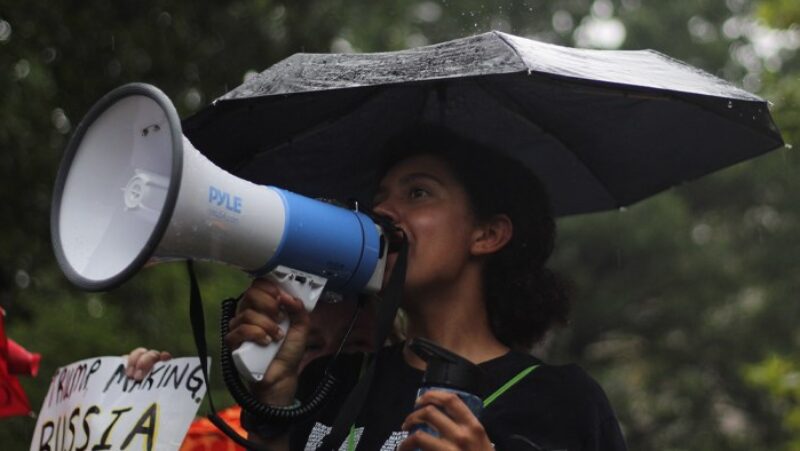Are Cults Illegal? A First Amendment Analysis

The First Amendment protects five freedoms, including religion, speech and assembly. But what about unpopular or controversial groups that are sometimes labeled as cults? Are such groups illegal or protected?
In this post, we examine "cults" and their relationship to the First Amendment. We also answer commonly asked questions such as: Are cults illegal? What makes a cult a cult? What's the difference between a cult and a religion?
Are cults illegal?
No. Under U.S. law, there is not a specific definition of a cult, and cults are not automatically illegal.
Freedom of religion protects beliefs that people find unusual or strange. Freedom of speech protects expressing views, including ones that are controversial. And the freedom of assembly protects gathering with like-minded people.
Actions by members of groups with shared beliefs can be illegal if the actions are crimes. But importantly, having certain beliefs and forming groups are not crimes.
First Amendment freedoms protect both people whose beliefs and views are common and those whose beliefs and views are uncommon or may seem strange to the majority.
What makes a cult a cult?
In common conversation, the word cult is usually used in a negative way to describe groups with beliefs that are unusual or that someone may find strange or scary. Such a group’s beliefs may be spiritual, religious, political or some other type of belief entirely.
Sometimes, religious groups may split over internal differences in beliefs or practices. Members of such denominations may consider a breakaway group to be a cult. Similarly, groups with some beliefs that are shared but others that differ may consider differing groups to be cults. Religious leaders may define their beliefs and guide their members as they choose.
The word cult may be used to demonize a group with religious beliefs outside the majority. For example, in 19th century America, the Roman Catholic Church and the Church of Jesus Christ of Latter-day Saints were sometimes termed cults at a time when Protestant denominations were dominant. Today, they are among the two largest denominations in the United States.
In academic circles, cults are generally defined as groups that have an authoritarian structure, isolate members from outside society, and use manipulation or coercion.

Charles Manson, leader of the Manson Family, pictured left and above, and Jim Jones, leader of the Peoples Temple, right, are widely regarded as two of the most notorious cult leaders in history.
But many experts and scholars no longer use the word cult because of its imprecise definition and widespread use in common culture. For example, a pop culture website might talk about a “cult” in which devoted fans adore a person or brand. Instead, scholars may use the terms “new religious movement” or “alternative religion.”
What’s the difference between a cult and a religion?
Whether a group is a cult is a matter for scholarly study and opinion – not a matter of First Amendment religious freedom. The First Amendment does not adjudicate beliefs or define if a group is a cult or something else.
There is no government-determined or legal definition of a cult or distinction between cult and religion for purposes of determining religious freedom protections. The First Amendment protects differing beliefs and the exercise of those beliefs from government interference.
While U.S. courts have never fully defined what is a religion, the courts do agree that it is not up to the government or the courts to decide whether a belief is true or false, only whether beliefs are sincerely held (United States v. Ballard).
"The First Amendment prohibits courts from defining religion in theological terms," according to Charles Haynes, Freedom Forum senior fellow for religious liberty. Because the government cannot favor any particular religion, it cannot define a religion as, for example, a group that believes in the Prophet Muhammad or one that believes in Jesus. "To maintain government neutrality, courts use what might be called a functional definition of religion that can be neutrally applied to any group claiming to be a religion."
Courts have historically been less protective of belief systems that are very different from those of the majority, but they increasingly recognize that unusual or minority faith groups are protected by the First Amendment just as much as beliefs held by the majority.
In fact, throughout history, people of minority religions have brought key legal cases to the courts that resulted in rulings that protect religious freedom for people of all faiths and none.
How do cults relate to the First Amendment?
The First Amendment freedom of religion protects deeply held beliefs – however unusual or strange they may seem to someone.
The First Amendment freedom of assembly protects the right to gather and organize with people who share the same views, ideas or beliefs.
In everyday conversation and in scholarship, cult is sometimes used to describe a group with shared religious, political or social beliefs that has engaged in criminal activity to further those beliefs.
The First Amendment does not exempt people from consequences for crimes like fraud, terrorism, sexual assault, blackmail or kidnapping. Regardless of the perpetrator’s beliefs, those crimes may be prosecuted.
For example, a group is free to believe that the U.S. government should be overthrown, that all people of a certain identity are evil or that humans must be sacrificed. The government cannot punish people simply for holding those beliefs.
However, if members of such a group began to assassinate members of the government, poison people of a certain identity or kidnap people to sacrifice them, those illegal actions would be prosecuted.
In some cases, state and federal laws may ensure religious exceptions to some laws. For example, regulations on drug use or animal slaughter may still sometimes allow these practices for religious exercise. When laws do not include religious accommodation, courts must decide when there can be religious exemptions to laws. They look at the government’s reason for having the laws. They look at how much the laws limit religious exercise. And they look at what states say about religious exemptions.
Similarly, laws cannot be written specifically to make religious practices illegal to target a religious group. For example, if a town council felt that a local group was a cult and decided to ban kite flying — that group’s form of worship — to make the group leave, the kite-flying ban would likely be challenged in court as a violation of the First Amendment.
What’s the bottom line for determining if cults are illegal or protected by the First Amendment?
The free exercise of religion is protected by the First Amendment, including the exercise of unusual or unpopular beliefs and views.
The First Amendment protects people of all faiths and none; it does not demonize any religious group with labels or distinctions like the largely negative word cult.
People in groups with beliefs that are not shared by the majority or seem extreme are protected from government interference or punishment for their beliefs and views – unless and until they take actions that are illegal.
Can the Government Fund Religious Schools?
The First Amendment Protects the Unsavory – and All of Us Too!
Related Content
$30,000 Giving Challenge
Support the Freedom Forum’s First Amendment mission by Dec 31st and double your impact.

